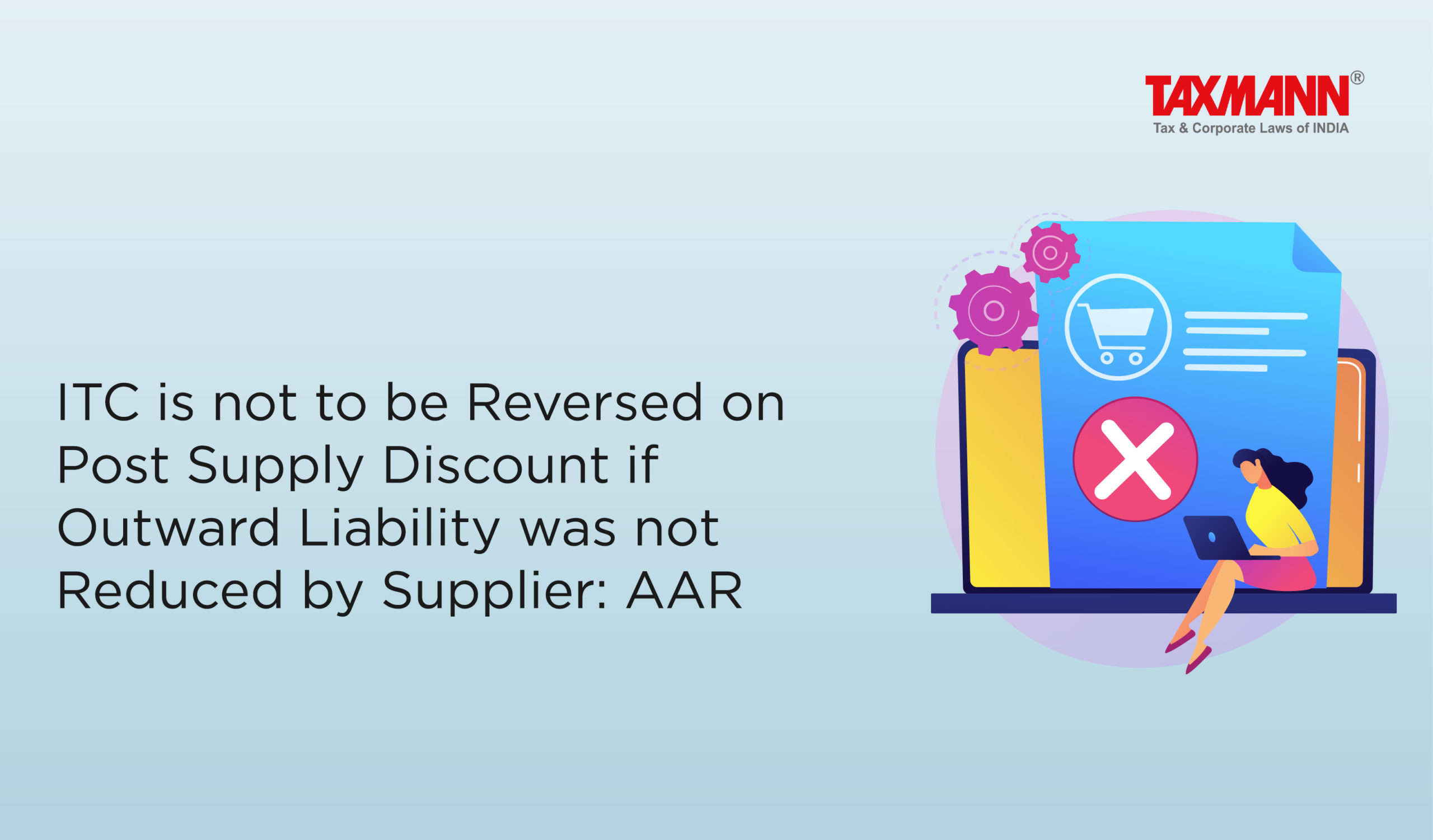ITC is not to be Reversed on Post Supply Discount if Outward Liability was not Reduced by Supplier: AAR
- Blog|News|GST & Customs|
- 2 Min Read
- By Taxmann
- |
- Last Updated on 3 July, 2023

Case Details: Authority for Advance Rulings, Andhra Pradesh Vedmutha Electricals India (P.) Ltd., In re - [2023] 152 taxmann.com 7 (AAR-ANDHRA PRADESH)
Judiciary and Counsel Details
-
- K. Ravi Sankar & RV Pradhamesh Bhanu, Member
- Madhu Jain, Adv. for the Appellant.
Facts of the Case
The applicant was engaged in business of supply various electronic items. It purchased various products from supplier and tax invoices were issued. Thereafter, it received various incentives in nature of “discounts” from its supplier in from of commercial/financial credit notes without GST. It filed an application for advance ruling to determine whether it would be liable to reverse ITC on discount received.
AAR Held
The Authority for Advance Ruling (AAR) observed that in the instant case, there was no prior agreement or correlation between credit notes and relevant invoices issued by the supplier. Therefore, as per provisions of section 15(3)(b), these discount would not be considered as trade discount and not eligible to reduce transaction value.
Moreover, the supplier of applicant had raised financial/commercial credit note for all discounts provided but without GST. Further, the supplier had not reduced its output tax liability in GST returns in respect of said financial/commercial credit note as section 15 shall not permit to exclude “post supply discount” from transaction value.
Therefore, it was found that there was no corresponding reduction in outward liability at end of supplier. Thus, the AAR held that the applicant would be eligible to claim full GST credit charged in tax invoice and it would not be required to reverse ITC to extent of financial/Commercial credit notes issued by supplier provided that assessee shall pay value of supply as reduced after adjusting amount of post-sale discount in term of financial/commercial credit notes received by it from supplier of goods plus amount of original tax charged by supplier.
Disclaimer: The content/information published on the website is only for general information of the user and shall not be construed as legal advice. While the Taxmann has exercised reasonable efforts to ensure the veracity of information/content published, Taxmann shall be under no liability in any manner whatsoever for incorrect information, if any.

Taxmann Publications has a dedicated in-house Research & Editorial Team. This team consists of a team of Chartered Accountants, Company Secretaries, and Lawyers. This team works under the guidance and supervision of editor-in-chief Mr Rakesh Bhargava.
The Research and Editorial Team is responsible for developing reliable and accurate content for the readers. The team follows the six-sigma approach to achieve the benchmark of zero error in its publications and research platforms. The team ensures that the following publication guidelines are thoroughly followed while developing the content:
- The statutory material is obtained only from the authorized and reliable sources
- All the latest developments in the judicial and legislative fields are covered
- Prepare the analytical write-ups on current, controversial, and important issues to help the readers to understand the concept and its implications
- Every content published by Taxmann is complete, accurate and lucid
- All evidence-based statements are supported with proper reference to Section, Circular No., Notification No. or citations
- The golden rules of grammar, style and consistency are thoroughly followed
- Font and size that’s easy to read and remain consistent across all imprint and digital publications are applied



 CA | CS | CMA
CA | CS | CMA
